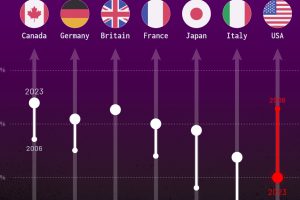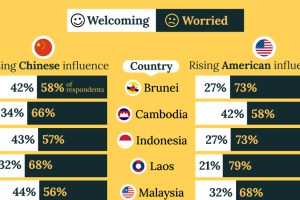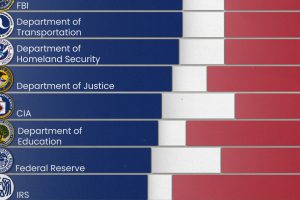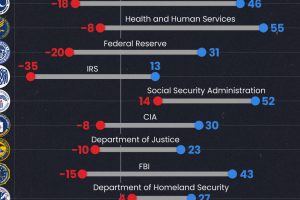The Year in News 2016
As an election year, 2016 was unequivocally political in nature.
It seemed like Donald Trump, Wikileaks, and so-called “fake news” dominated headlines throughout the year, regardless of what was going on in the world.
But how did the news cycle actually break down from a quantitative perspective?
For the second year in a row, we look to Echelon Insights for their infographic that analyzes the year’s news based on data from over two billion tweets.
Trumping the Conversation
While it is certainly no surprise that Donald Trump dominated the majority of political conversations, the actual numbers help to provide more clarity to this claim.
Trump consistently accounted for about 40-60% of the share of candidate mentions for the majority of the year leading up to the election, even during the primaries. Most of the time, this was roughly double that of Hillary Clinton’s share of mentions.
After November 8th, Trump mentions skyrocketed to make up nearly 80% of all candidate mentions.
Even though many of these mentions were of the negative variety, Trump proved that all publicity is good publicity. Trump’s statements got non-stop media coverage and social engagement, giving the Trump campaign a name recognition and mind share advantage. And ultimately, despite several controversial statements, this allowed his key messages to get relayed to the electorate where they were needed.
WikiLeaked
Hillary Clinton and the DNC also received no shortage of bad press – and these ended up being the two most-talked about “scandals” of the year by Twitter users in the U.S.
Here are the top 10 political controversies, and their number of mentions in 2016:
- WikiLeaks/Hacking: 33,083,038
- Clinton’s Emails: 21,123,778
- Deplorables: 5,989,433
- Electoral College: 5,330,993
- Trump Tapes: 5,212,502
- Voter Fraud: 4,789,013
- Abedin/Weiner: 3,758,636
- Fake News: 3,358,189
- Steve Bannon: 3,108,580
- Trump’s Taxes: 2,688,991
The original DNC leak from WikiLeaks in late-July prompted the resignation of DNC Chair Debbie Wasserman Schultz over allegations of the DNC undermining the Bernie Sanders campaign.
Meanwhile, the 50,000 emails from John Podesta were made available to the public in smaller tranches in October and November. The end result of this smart release strategy was that WikiLeaks and the hacks stayed in the news throughout the year, making it the top political controversy story (in terms of U.S. tweets) in 2016.





